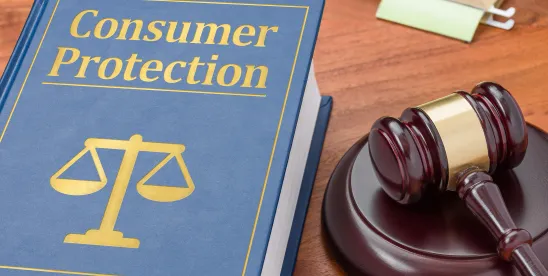A few years back Puja and I spoke on stage at LeadsCon and drew gasps from the audience.
In our presentation we embedded photos of a lead generation website with disclosure terms we suggested to the audience might not be enforceable under the FCC’s clear and conspicuous standards and related case law.
We said the website–whose call to action was not delivered on in the flow–amounted to “lead fraud light.”
That website?
LowerMyBills.com.

Remember that time we called LMB.com “Lead Fraud Light IMO” on stage at LeadsCon? hahahaha
We urged folks in the audience to recognize that failing to deliver the “free results calculations” coupled with a highly-misleading (in my view) flow that culminated with tiny light gray font beneath a giant green button is exactly the sort of thing that would get the industry in trouble.
Surprisingly Puja and I were not invited back to speak the following year.
No one was ready to listen then.
And it was because of that experience that I realized the industry needed to be cleaned up. I founded R.E.A.C.H. within months to save the industry and the rest is history.
Well almost.
There’s just that part about me having to say I was right.
Again.
In Dadah v. Rocket Mortgage, 2024 WL 4299564 (E.D. Mich Sept. 26, 2024) the court refused to compel arbitration of a TCPA class action concluding the lowermybills.com website did not afford even reasonable notice to the consumer–much less the clear and conspicuous disclosure required for express written consent.
In the Dadah court’s view, the failure to have the disclosure visible “on a single” screen was a massive problem:
Rocket takes issue with the court’s analysis regarding proximity and its emphasis on the disclosure being below the assent button, rather than above. Rocket’s argument suggests that this aspect of the court’s proximity analysis was dispositive, however, it was but one factor to be considered in the conspicuousness analysis
In contrast, the “Calculate” buttons in this case were not on “single screens” like that in Seldon. Instead, the user was required to input a variety of information, the website would scroll (or move automatically) to the next input line, and then the “Calculate” button and the notice would appear. The court’s consideration of proximity included, but was not limited to, the location of the terms below the assent button. This location was more important here than in other cases because the font was also very small when compared to the assent button, the text was light grey in color as opposed to a more prominent or contrasting color, and the notice was on a page that moved dynamically, not a single, static page.
They require highly-contrasting font color that is above the button and at least 10 point font. Pretty clear and helpful, right?
So a court literally just held lowermybills.com consent forms to be unenforceable. Let that sink in.
Obviously massive massive risk to Rocket now. Basically half the calls it has made over the last four years just became TCPA violations. Billions of dollars in risk here. (Are they out of business?)
Just awful.
Like I said on stage at LeadsCon Connect just two days ago–they wisely invited Puja and I back to speak on the main stage LeadsCon GETS IT now and Ian has been a big supporter– the future is R.E.A.C.H. You’re either abiding V.2.0 standards or you are out of business. Simple as that.
Oddly for Rocket, however, the fact that its primary lead generation website is unenforceable wasn’t even the most embarrassing part of the ruling.
The court found allegations of Rocket’s repeated failure to honor DNC requests were so disturbing that Plaintiff had plausibly alleged it did not maintain a DNC policy at all.
No DNC policy? Rocket Mortgage? Are you kidding me?
Just an utter train wreck of a disaster for Rocket here. And old school lead gen is absolutely unravelling. DMS bankrupt. QuoteWizard facing $400MM in exposure. And now LMB is toast.
Have I mentioned R.E.A.C.H. yet?
Join or die folks.
I know that’s a terrible message. But its also the truth. Let all who have ears hear.




 />i
/>i

